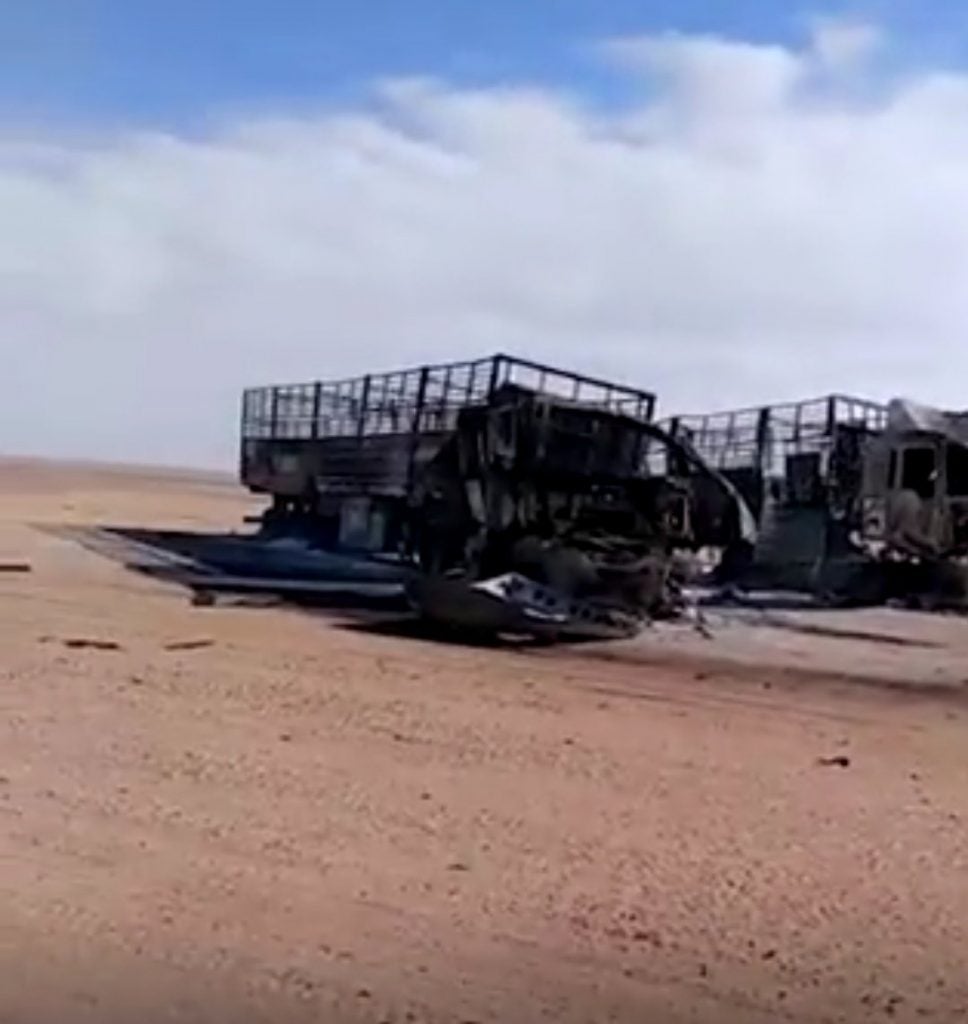Algeria Alleges Moroccan Attack Killed Three Algerians
Algerian state media reports that the Algerian Parliament has granted its support to all decisions taken by the presidency to respond to an alleged drone attack that killed three Algerians on the border between Mauritania and the disputed Western Sahara. The Algerian presidency has officially blamed Morocco for the attack.
In a statement carried by state media on Wednesday, the Algerian presidency accused Moroccan forces of using “sophisticated weaponry” in a “barbaric bombing” of the trucks the three were driving from Nouakchott, Mauritania’s capital, to Ouargla in southern Algeria. The statement warned that the attack, said to have taken place on November 1, “will not go unpunished”.
While Morocco has yet to issue a formal statement on Algeria’s accusations, sources that spoke to al-Jazeera denied that Morocco would target Algerians citizens “regardless of circumstances or provocations”, adding that “if Algeria wants war, Morocco doesn’t”. The Mauritanian Army has denied that the alleged attack took place in Mauritanian territory .
The accusations are a new escalation in a diplomatic crisis between the two countries that has been ongoing since August, when Algiers cut off diplomatic relations with Rabat, alleging “hostile actions”. While the Western Sahara has long been a source of tension between the two countries, with Algeria supporting the Polisario Front movement fighting for the independence of the Western Sahara, tensions have spiraled since the Trump administration chose to recognize Morocco’s claims over the former Spanish colony in December 2020, in exchange for Morocco normalizing diplomatic relations with Israel. Morocco controls 80% of the Western Sahara, with the remaining area controlled by the Polisario Front’s self-declared Sahrawi Arab Democratic Republic.
Another effect of the rise in tensions was Algeria’s decision to halt operations of the Maghreb-Europe Gas pipeline on October 31, after Algiers chose to not renew the operations agreement for the pipeline that transfers natural gas from Algeria to southern Spain by way of Morocco. While experts that spoke with Spanish newspaper El Pais don’t believe that the loss of supply will result in blackouts in Spain this coming winter, they say that relying on liquefied natural gas tankers to make up for the shortfall will drive up costs, due to both a global rise in natural gas prices and an ongoing shipping crisis.

